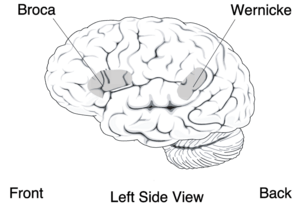Cognitive psychology facts for kids
Cognitive psychology is a part of psychology that studies how our minds work. It explores how we think, feel, solve problems, remember things, and use language. Think of it as looking at the "software" of our brain.
Cognitive psychologists often study what happens in our minds between when we sense something (a stimulus) and when we react to it (a behavioral response). For example, how do you process the sound of a bell and then decide to answer the door?
This field started with ideas from Gestalt psychology and the work of Jean Piaget. Piaget developed a theory about how children's thinking skills grow through different stages.
Contents
What Cognitive Psychologists Study
Cognitive psychology covers many exciting areas. It helps us understand how we learn and interact with the world.
How We See and Hear (Perception)
Perception is about how our brains take in information from our senses. This includes what we see, hear, smell, taste, and touch. Cognitive psychologists study how we make sense of all this information. For example, how do you recognize a friend's face in a crowd? Or how do you understand words even if someone speaks quickly?
How We Learn New Things (Learning)
Learning is a big part of cognitive psychology. It looks at how we gain new knowledge and skills. This includes everything from learning facts for a test to learning how to ride a bike. Psychologists in this area study different ways people learn best. They also look at how our past experiences affect what we learn next.
How We Remember (Memory)
Memory is how our brains store and recall information. Cognitive psychologists study different types of memory. This includes short-term memory (like remembering a phone number for a few seconds) and long-term memory (like remembering your first day of school). They also explore why we sometimes forget things and how to improve our memory.
The Psychology of Language (Psycholinguistics)
Psycholinguistics is the study of how we learn, understand, and use language. It's a key part of how we communicate. This area looks at:
- Grammar and linguistics: How we put words together to make sentences.
- Phonetics, phonology, and acoustics: The sounds of language and how we hear them.
- Pragmatics: How we use language in social situations, like understanding jokes or sarcasm.
How We Think and Solve Problems (Thinking)
Thinking is all about how our minds process information to make decisions and solve problems. This includes things like:
- Problem-solving: How we figure out solutions to challenges.
- Decision-making: How we choose between different options.
- Reasoning: How we use logic to understand things.
Cognitive psychologists study how people approach these tasks. They look at why some people are better at certain types of thinking than others.
See also
In Spanish: Psicología cognitiva para niños
 | Valerie Thomas |
 | Frederick McKinley Jones |
 | George Edward Alcorn Jr. |
 | Thomas Mensah |


